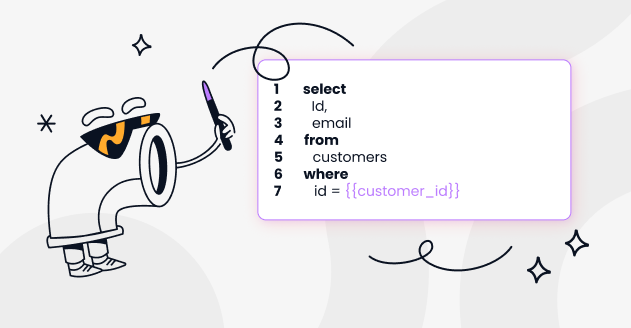Top Benefits Of Cloud-Based Data Lineage
Streamlining Governance, Enhancing Accuracy, Ensuring Compliance, and more

When data lineage was a relatively new concept, organizations primarily relied on manual documentation or traditional software hosted on-premises to identify data & track data flows. These methods, while functional, often required substantial manual effort, dedicated hardware, and could be cumbersome when it came to updates and scalability.
Cloud-based data lineage solutions helped in solving these issues. Imagine taking all the complexities of traditional methods and lifting them into a virtual space where scalability, collaboration, and real-time updates become the norm. These cloud solutions are hosted on remote servers, offering organizations flexibility, enhanced capabilities, and often, more cost-effective pricing models. Not only do they reduce the need for physical infrastructure, but they also promote better collaboration and ensure data is accessible and updated in real time.
In this article, we'll uncover the myriad advantages of opting for a cloud-based approach to data lineage and why it's quickly becoming the preferred choice for many modern organizations.
What Is Data Lineage?
Data lineage illuminates the journey of data, tracing its origin, the paths it traverses, its transformations, and eventual endpoints. Within the heart of data-driven organizations, this traceability becomes a cornerstone. By visualizing data lineage, organizations can enhance data accuracy, pinpointing errors or inconsistencies with ease.
Furthermore, it fosters trust; stakeholders can see the data's evolution. As data lineage enables data's integrity and credibility. This transparency is not just about building confidence, but also about adhering to the ever-tightening regulatory frameworks.
Regulatory bodies worldwide emphasize the importance of understanding and documenting the flow of data, and a clear lineage aids in ensuring compliance. In essence, data lineage serves as both a map and a compass, guiding organizations to make informed, accurate, and compliant data-driven decisions.
Top Benefits of cloud-based data lineage for your business
Here are some benefits of data lineage on the cloud:
Holistic Data Governance
Data governance is not merely about storing data securely. It’s about maximizing its potential. A cloud-based data lineage tool doesn't just track data—it provides a comprehensive view of its journey. From the moment data is sourced to the many transformations it undergoes, data lineage ensures that you always have a 360-degree perspective. This clear understanding reinforces reliable and robust data governance, ensuring businesses use their data most effectively.
Enhanced Data Accuracy and Reliability
Mistakes happen, and in the data world, a tiny error can lead to colossal blunders. But with cloud-based data lineage, you can trace every step of your data, pinpointing where inaccuracies might have occurred. This not only allows for immediate corrections but sets the stage for a continuous improvement loop. Over time, this means your data assets become more reliable, increasing trust in your analytical outcomes.
Rapid Impact Analysis
Change is constant, especially in the realm of data. Every change, however, brings with it a set of impacts. With data lineage, you're never left in the dark. It swiftly gives insights into how data alterations might affect the larger picture, ensuring business users can act promptly. This trifecta of visibility, traceability, and rapid response can be a game-changer, ensuring you're always a step ahead.
Deeper Data Contextualization
Imagine having a detailed history of every interaction with your data. This isn't a data analyst's dream—it's what data lineage offers. By continually monitoring data transformations and usage of data elements, it provides a rich context. Such a granular view means that when you analyze data, you're not just seeing numbers but understanding the stories behind them. This depth can be the difference between basic insights and actionable intelligence.
Robust Compliance Reporting
In many sectors, compliance isn't just a buzzword—it’s a necessity. Transparency and traceability, the cornerstones of regulatory compliance, are also the core values of tracking data lineage. By offering a clear path of where your data has been and how it's been used, cloud-based data lineage tools greatly reduce compliance risks. The end result? Reports that aren't just compliant, but ones stakeholders can place their utmost confidence in.
Efficient Root-Cause Discovery
Issues will arise—that's a given. But what if you could pinpoint the cause almost instantly? Data lineage aids in swift root-cause identification, making problem-solving faster and more efficient. By understanding where challenges arise, businesses can address them head-on, preventing repeated mishaps and strengthening their data processes.
Understanding Downstream Implications
Every action has a reaction. In the world of data, this means every change has downstream effects. Data lineage tools allow teams to visualize these potential consequences in real time, enabling proactive strategies and timely adjustments. This foresight ensures smoother operations and more predictable outcomes.
Automated Data Quality Assurance
Quality assurance isn't just about post-process checks. With cloud-based data lineage, quality assurance becomes an ongoing, automated endeavor. By continually overseeing the data's journey, these tools improve data quality and ensure only the highest quality data makes it to the end line. It's like having a vigilant guardian, ensuring your data's integrity around the clock.
Streamlined Auditing and Documentation
Audits can be cumbersome, but they are essential for many businesses. With data lineage, the audit process becomes a breeze. By providing clear, transparent documentation of the data's journey, these tools significantly ease the auditing process, ensuring compliance and building trust with stakeholders.
Challenges and Considerations
Transitioning to cloud-based data lineage, while promising, isn’t without hurdles:
- Data Migration: Moving data to the cloud can be complex. There's a risk of data loss or corruption, and depending on the volume, it might be time-consuming.
- Service Disruptions: The migration process might cause temporary service downtimes, affecting business operations. Critical data sets could also be briefly inaccessible, which requires careful planning.
- Team Onboarding: New systems mean a learning curve. Training is vital, but so is addressing the natural resistance to change. Ensuring all teams are aligned and understand new processes is paramount to prevent confusion.
- Cost Implications: The initial transition to the cloud might incur costs like training or migration tools, even if there are long-term savings.
- Security Concerns: Shifting to the cloud can raise security issues, especially for businesses handling sensitive data. Choosing a cloud provider that meets stringent security standards is crucial.
Conclusion
Cloud-based data lineage offers a plethora of benefits from scalability, and cost efficiency to enhanced security. As we march forward in this data-driven age, ensuring transparency and trust in our data becomes paramount, making cloud-based data lineage an inevitable choice for forward-thinking organizations.
Subscribe to the Newsletter
About us
We write about all the processes involved when leveraging data assets: from the modern data stack to data teams composition, to data governance. Our blog covers the technical and the less technical aspects of creating tangible value from data.
At Castor, we are building a data documentation tool for the Notion, Figma, Slack generation.
Or data-wise for the Fivetran, Looker, Snowflake, DBT aficionados. We designed our catalog software to be easy to use, delightful and friendly.
Want to check it out? Reach out to us and we will show you a demo.
You might also like
Get in Touch to Learn More



“[I like] The easy to use interface and the speed of finding the relevant assets that you're looking for in your database. I also really enjoy the score given to each table, [which] lets you prioritize the results of your queries by how often certain data is used.” - Michal P., Head of Data




.png)




